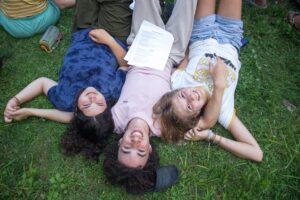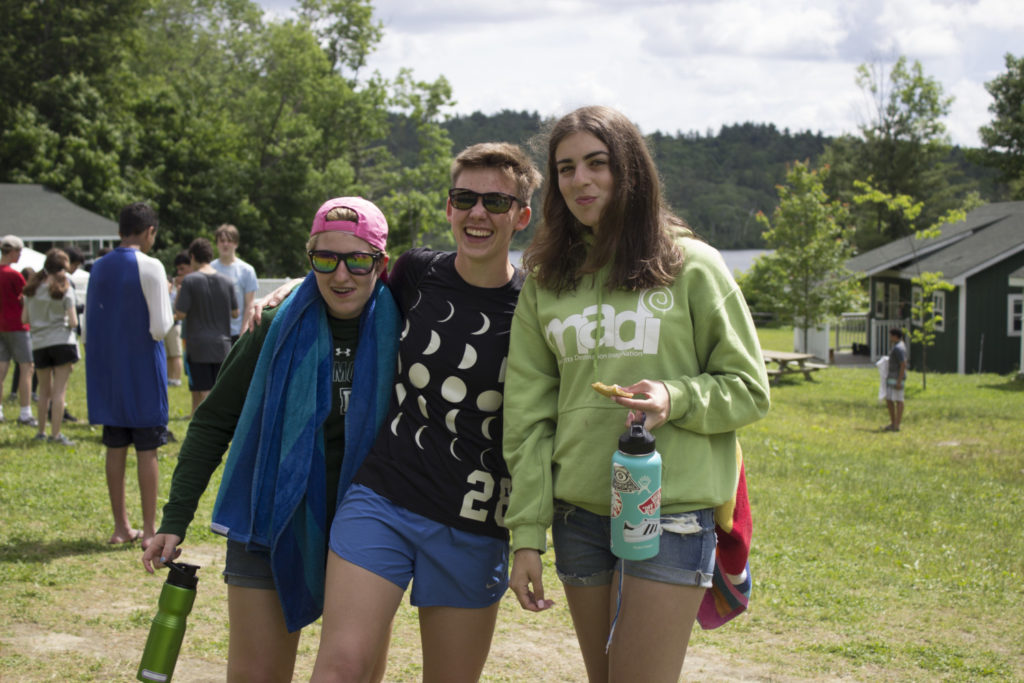After another summer at camp where I am able to completely unplug from social media and the news and the mindless scrolling that comes along with both of those things, I realized that my camp relationship with my phone was much healthier than my home relationship! So I decided to seek help from our local library and I recently finished reading “How to Break Up with Your Phone” by Catherine Price! It’s not your average self-help book—it’s a practical, science-backed guide on how to reclaim control over our devices and, ultimately, our lives.
The Phone “Problem”
The core issue, as Price describes it, isn’t that phones are bad—it’s that we’ve developed an unhealthy attachment to them. This stems from their design: social media platforms, notifications, and even the apps we use daily are built to capture and maintain our attention for as long as possible. In the process, they change how we think, what we pay attention to, and even how we interact with the world around us.
As I read through the first chapters, I found myself thinking about my habits—checking my phone right after waking up, constantly reaching for it in idle moments, even using it as an escape from boredom. Sound familiar?
The 30-Day Plan
What really sets this book apart is the actionable plan Price outlines: a 30-day “phone breakup.” This isn’t about throwing your phone out the window or going on a digital detox for good. It’s about creating space between you and your device, so you can have a healthier, more intentional relationship with it. I’ll admit, some of it was pretty obvious and some was a bit “cheesy”, but it was still helpful to see it all laid out for me in print!
The Benefits of Breaking Up
One of the most powerful takeaways from the book is that, in breaking up with your phone, you gain so much more than just extra time. Price points out the ways in which phone overuse impacts our memory, creativity, and mental health. By reducing screen time, we not only free up space for more meaningful activities but also allow ourselves to be present in our own lives.
This reminds me of the experiences shared by children who attend screen-free summer camps like Camp Akeela. These camps, where kids spend days or weeks entirely free from phones and other devices, provide living proof of the benefits of stepping away from screens. At Camp Akeela, campers report feeling more connected to nature, making deeper friendships, and rediscovering hobbies and interests they might not otherwise have explored. It’s a clear example of how stepping back from technology fosters creativity, enhances social connections, and brings a sense of calm and focus that’s hard to find when we’re constantly plugged in.
For example, instead of mindlessly scrolling through Instagram during downtime, I started using those moments to read more, reflect, or just be still. The result? I feel more focused and less frazzled. I’ve also noticed I’m more engaged in conversations and less distracted during family time—something I didn’t realize I was missing out on.
Practical Tips that Worked for Me
- **Turn off unnecessary notifications**: I used to get notified for every email, message, and app update. Turning off all but the essentials has drastically reduced the number of times I instinctively check my phone.
- **Establish phone-free times and places**: Keeping my phone out of the bedroom has helped me sleep better. I also started leaving my phone in another room during meals, which made me more present during family time.
- **Use apps to track and limit phone use**: Price encourages readers to download apps that monitor phone usage. Seeing those stats was a reality check. I set daily limits on my social media usage, which has been a game-changer.
- **Replace idle phone use with something intentional**: Instead of reaching for my phone when I’m bored, I now carry a book with me or take a moment to daydream. It’s amazing how much we rely on our phones to fill every empty second.

Final Thoughts
I want to be more present in my life for my family and friends but also because I realize that I’m missing out on so many of the little things when I’m looking at my phone. Because of camp, I know what it feels like to be screen-free (it’s more like “screen-limited”). It’s such a gift to have almost 3 months away from technology and even more so for our children who seem to be even more entrenched in their digital life than we are. On top of that, we also know that folks who are Neurodivergent are even more likely to be reliant on technology and having a break allows them to reset expectations around screen time. 18 years ago, when we started Akeela and decided not to have any technology, I don’t think we really understood how important that would be for our campers, but it turns out it might be one of the top 5 most beneficial outcomes of a summer at camp.




 Check out
Check out